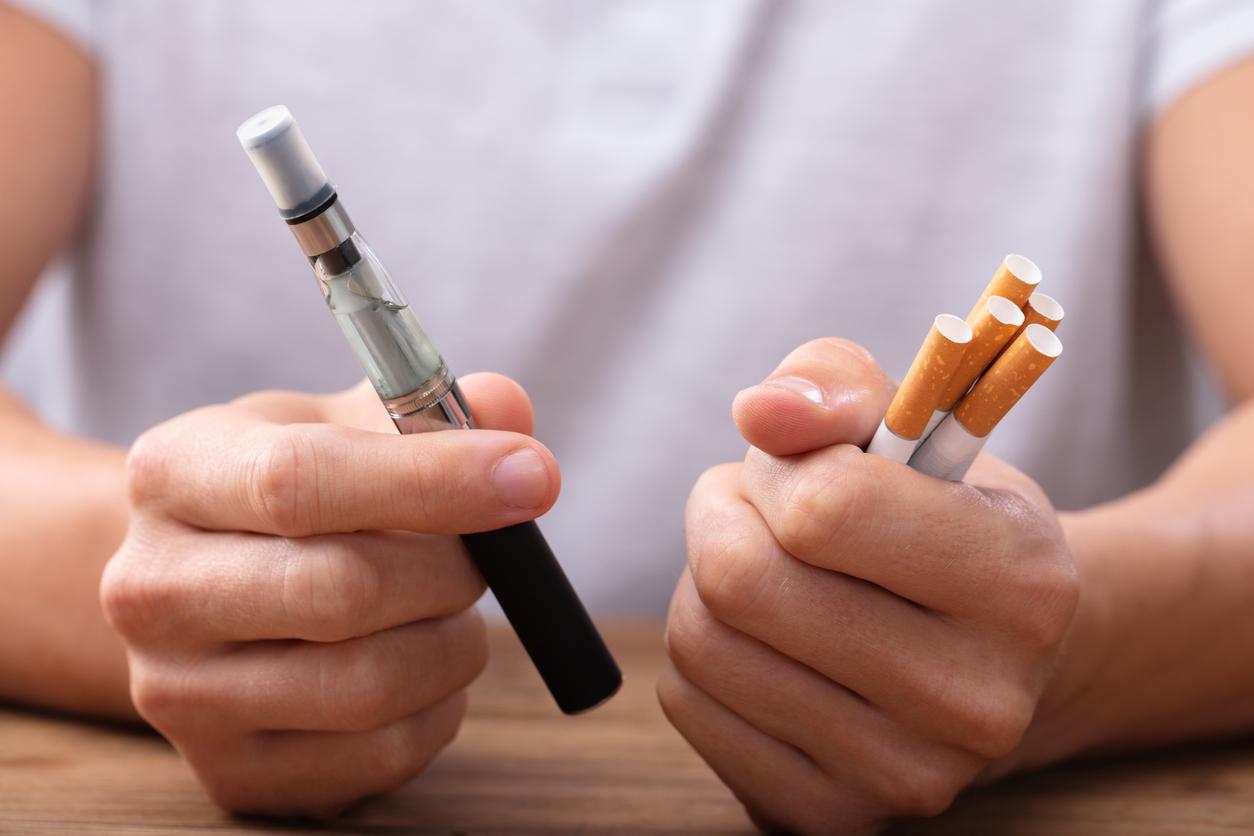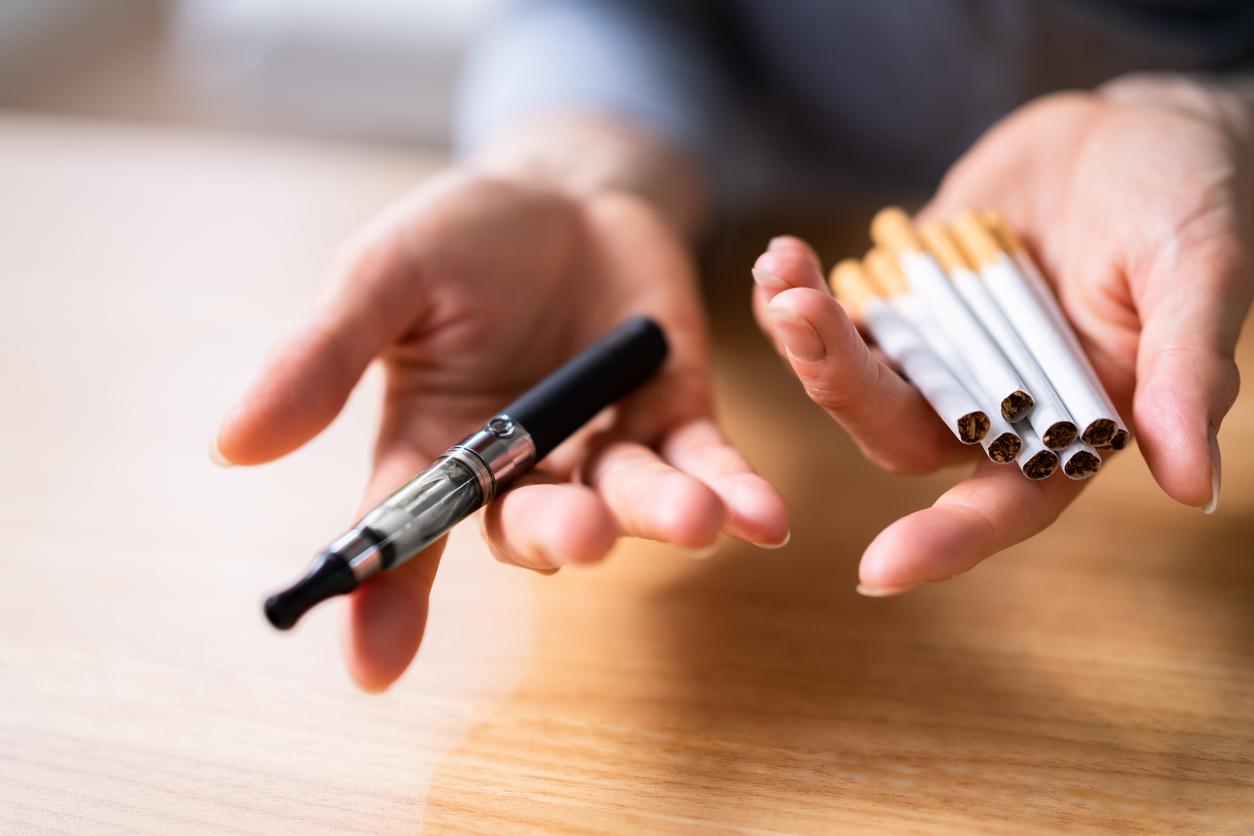The dangerousness of electronic cigarettes would justify “a more in-depth toxicological evaluation”.

- Vapors from e-cigarettes destroy lung cells.
- The debate on the recommendation of electronic cigarettes in the context of smoking cessation is revived.
A new study confirms the dangerousness of electronic cigarettes, whose vapors destroy lung cells.
Faced with a consumption habit “epidemic proportions”, researchers at Duke University (United States) have analyzed the evolution of the cells that line the bronchi when exposed to the flavors of e-cigarettes (vanilla, cinnamon, fruit), then to these same flavors mixed with solvents (propylene glycol or vegetable glycerine) necessary for the manufacture of vaporizers. Conclusion: “exposure to certain aldehydes alters key parameters of cellular metabolism”, note the researchers.
Pharmacological, metabolic and toxicological effects
They add : “Novel chemical reaction products formed in e-cigarette liquids, such as flavored aldehyde-PG acetals, have potent pharmacological, metabolic and toxicological effects, which are different from their original constituents. Therefore, the health safety of the e-cigarette requires further toxicological evaluation”.
“This work shows that the liquid for e-cigarettes has been made available to consumers without adequate understanding and safety testing. They underscore the fact that e-cigarettes cannot be considered a safe alternative to tobacco cigarettes. “, considers in Futura Health Jorgen Vestbo, member of the board of directors of the European Society of Respiratory Diseases on the occasion of its last virtual congress. He calls on the authorities to take the necessary measures “to reduce the risks as much as possible”.
“Unquestionably harmful”
The World Health Organization (WHO) qualified the electronic cigarette last year “undeniably harmful”, highlighting the risks of irritation of the respiratory tract, throat and eyes, or the risk of cardiovascular effects. The institute had even concluded that she “should not be promoted as a withdrawal aid”, causing a lively debate on the Web.
.















